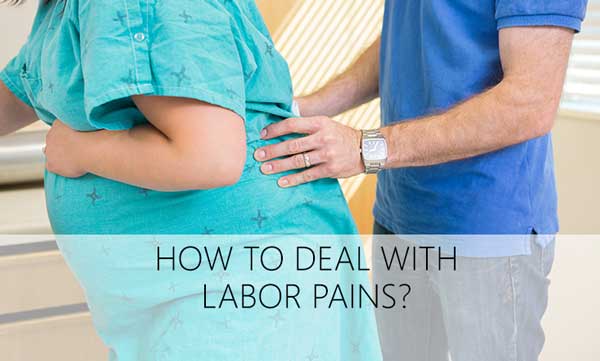Tips To Relieve Labor Pain – Childbirth

Though labor pain is one of the most dreaded pains, it rewards you with the most beautiful gift, the gift of life. When you go through intense pain, you feel that it will never end, but from the birth of your child all this pain seems to disappear and you forget everything. There are many methods to control this pain. Some medicines are also available. However, you have a general idea of how to deal with work-related pain and discomfort, so that your childbirth becomes a more comfortable experience for you.
Tips to relieve labor pain
Everyone knows that labor and delivery are probably going to hurt but what can you do when you’re in labor, and the pain is finally real? Here are seven strategies to help you cope with the pain.
1. Find a soothing environment
You must feel safe in your birthplace. There must be room to walk and bathe, as well as a variety of furniture and appliances to improve movement and relieve pain; a CD player, a rocking chair, a birth balloon, a low stool, a squatting bar and the soft bed. He must also have a policy that encourages you to try different functions. Access to appropriate medical care is crucial if a problem arises.
2. Choose your team carefully
Knowledgeable and caring midwives, doctors, nurses, partners, family members, and doulas create a supportive birth team. When you are treated with respect and patience, stress and inhibitions decrease, and you can easily find your best coping mechanisms.
3. Find lighting with hot or cold compresses
Place a warm bite on your lower abdomen, lower back or shoulders while working. A cold compress or a latex glove filled with ice chips can relieve painful spots. A soft cloth relieves sweat on the face, chest or neck.
4. Allow yourself to be touched or send a message
Whether it is a person holding your hand as he strokes your cheek or hair, or puts your hand or your shoulder, touch gives assurance, compassion, and understanding. Ask your partner or your doula to massage you with light or hard strokes with oil or lotion.
5. Express your fears
Are you worried about pain and work, needles, medication or loss of control? Talk to an expert and trusted friend, an educator for children or doula. Expressing your concerns can bring relief and provide a practical solution for your interests. Starting your preferences in a birth plan can also help calm your fears.
Related: HOW TO DEAL WITH LABOR FEARS?
6. Practice rhythmic breathing
Breathe entirely in a slow rhythm during contractions. Unlock the voltage at each end and try to understand it. Also take rapid breaths, about fear of 2 to 3 seconds (20 to 30 per minute).
Ways to manage pain during childbirth
The most natural and most common way to control pain during delivery is by preparing during pregnancy. You have to practice light, have proper nutrition and learn breathing techniques to reduce pain. If your body is fit and flexible, you may not need help while you work.
Some medicines are also available. The systematic drug options are:
The first is the use of painkillers and narcotics, which are administered during the active work process. This increases your tolerance level, but can cause drowsiness and even speed up or slow down work. It can also have side effects on the baby.
A tranquilizer administered with an anesthetic may provide better pain relief than when it is given alone. It reduces your fear and anxiety and helps you relax.
The last option is that of sedatives, which slow down the process, let you relax and let your body rest. But these have side effects on you and the baby.
Regional anesthesia is another form of medicine. The most common is the use of epidurals that block the pain in the waist. It is given during the last phase of the work. This is given by injection into the spine. In this, you do not feel any work pain, but you feel pressure and pressure at the moment of contraction. This way you can time your push efforts with contractions. The drug has almost no side effects, but it is not effective in some women.
Related: NATURAL BIRTH VS. EPIDURAL: WHICH ONE SHOULD I CHOOSE?
Conclusion
You can learn the pain management option from your doctor/caregiver. They will advise you on a program of pain relief during work, adapted to your case and that of your baby. Every woman is different, so the medication to be used depends on your body type. Effective pain management relaxes you, and the childbirth experience becomes much more comfortable.









